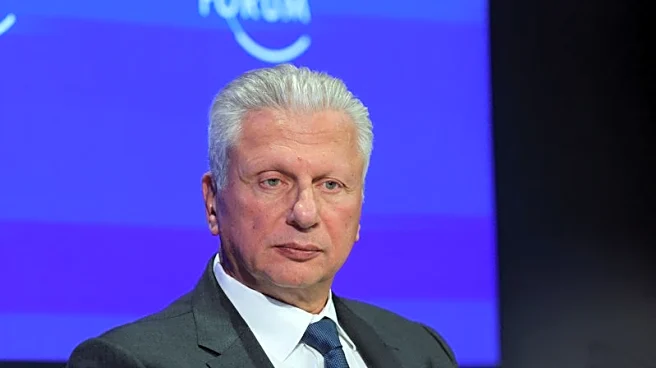What's Happening?
Leaked U.S. documents have revealed that despite public condemnation of the Gaza conflict by key Arab states, there has been a quiet expansion of security cooperation with the Israeli military. This cooperation, facilitated by the U.S. Central Command, involves senior military officials from Israel and six Arab countries, including Bahrain, Egypt, Jordan, Qatar, Saudi Arabia, and the United Arab Emirates. The collaboration aims to address regional threats, particularly from Iran, and includes planning meetings and training sessions on issues such as underground tunnels used by Hamas. The documents highlight the creation of a 'Regional Security Construct' to foster military ties, with meetings held in Bahrain, Egypt, Jordan, and Qatar. The cooperation has been strained by Israel's airstrike in Qatar, but it is expected to play a role in overseeing the ceasefire in Gaza.
Why It's Important?
The expansion of Israeli-Arab military cooperation, facilitated by the U.S., signifies a strategic shift in Middle Eastern alliances, driven by shared concerns over Iran's influence. This collaboration could reshape regional security dynamics, potentially leading to increased stability or further tensions, depending on how the ceasefire in Gaza is managed. The involvement of Arab states in supporting U.S. initiatives reflects a pragmatic approach to security, balancing political sensitivities with the need to counter Iranian threats. The cooperation also underscores the U.S.'s role in fostering military partnerships that could lead to political normalization between Israel and Arab states, although this remains a complex and sensitive issue.
What's Next?
The future of Israeli-Arab military cooperation will likely depend on the success of the ceasefire in Gaza and the ability of involved parties to manage political tensions. The U.S. plans to send 200 troops to Israel to support the ceasefire, with potential involvement from Arab countries. The establishment of mechanisms to guarantee security for all sides is crucial, but Arab states have yet to commit publicly to deploying military forces. The U.S. military is also working on initiatives like a 'Combined Middle East Cyber Center' and an 'Information Fusion Center' to enhance regional security collaboration. The ongoing distrust following the Israeli strike in Qatar may challenge these efforts, but the shared goal of countering Iran could drive continued cooperation.
Beyond the Headlines
The leaked documents highlight the ethical and political complexities of military cooperation between Israel and Arab states. While the collaboration aims to address security threats, it also raises questions about the transparency and accountability of such partnerships, especially given the public condemnation of Israel's actions in Gaza by Arab leaders. The U.S.'s role in facilitating these ties reflects its strategic interests in the region, but it also risks being perceived as complicit in controversial military actions. The partnership's focus on countering Iran's narrative and fostering regional prosperity suggests a broader geopolitical strategy that could influence future diplomatic relations in the Middle East.










